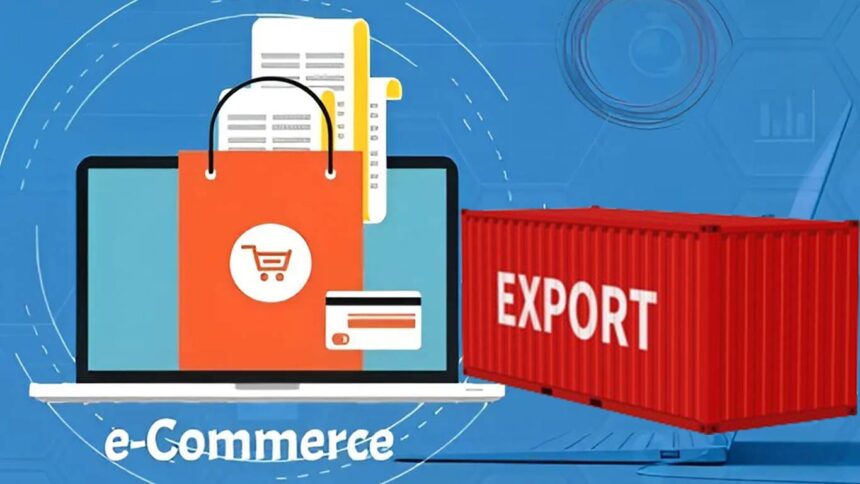Introduction
The Union Territory of Jammu and Kashmir, often referred to as a ‘Heaven on Earth’ due to its breathtaking landscapes and rich cultural heritage, is now setting its sights on becoming a ‘Heaven for Exports.’ The government has unveiled an ambitious plan to achieve an export target of Rs 10,000 crore over the next five years. This initiative is encapsulated in the Draft Jammu and Kashmir Export Policy, 2024, released by the Department of Industries and Commerce. The policy aims to leverage both core and emerging sectors of exports while addressing existing gaps in the export ecosystem.
Vision and Mission of the Export Policy
The vision behind the Jammu and Kashmir Export Policy is to harness the region’s export potential based on its unique strengths and competitive advantages. The government recognizes that to transform the local economy into a competitive export-led entity, it must create a conducive environment that fosters growth and innovation.
Goals of the Export Policy
- Achieve a Target of Rs 10,000 Crore: The primary goal is to reach an export target of Rs 10,000 crore within five years by focusing on both traditional and emerging sectors.
- Enhance Quality and Competitiveness: The policy emphasizes improving the quality and competitiveness of products exported from Jammu and Kashmir, particularly in sectors where the region has established expertise.
- Promote Unique Handicrafts and Agri-Commodities: Special attention will be given to promoting the region’s world-famous handicrafts, handloom products, and agri-commodities, especially those with Geographical Indication (GI) tags.
- Develop New Focus Areas: The government plans to explore new areas for export growth, including Pharmaceuticals, Medical Devices, Information Technology (IT) & IT Enabled Services (ITES), Biotechnology, and Electric Mobility.
Strategic Framework for Implementation
To achieve these ambitious goals, the Jammu and Kashmir government has outlined a comprehensive strategic framework that includes several key components:
Institutional Mechanism
The establishment of an effective institutional mechanism is crucial for facilitating exports. This will involve:
- Creation of District Export Action Plans: These plans will be tailored to specific sectors and products, incorporating both hard (infrastructure) and soft (capacity building) interventions aimed at accelerating exports.
- Revamping Existing Infrastructure: The government will focus on upgrading common facility centers, processing centers, raw material banks, skill development initiatives, design innovation programs, and quality assurance measures.
Trade Infrastructure Development
The development of trade infrastructure is essential for enhancing export capabilities. This includes:
- Improving Logistics: Streamlining logistics operations to ensure timely delivery of goods will be a priority. This may involve partnerships with logistics companies to create efficient supply chains.
- Enhancing Market Access: The government aims to improve market access for local exporters by facilitating participation in national and international trade fairs, exhibitions and buyer-seller meets.
Marketing Assistance
Effective marketing strategies are vital for promoting Jammu and Kashmir’s products in domestic and international markets. Key initiatives will include:
- Brand Promotion: A concerted effort will be made to promote ‘Brand Jammu & Kashmir’ through various marketing campaigns aimed at enhancing visibility among potential buyers.
- Digital Marketing Initiatives: Leveraging digital platforms for marketing purposes will be crucial in reaching a wider audience. This includes creating an online presence for exporters from Jammu and Kashmir.
Addressing Existing Gaps
The government recognizes that there are several gaps in the current export scenario that need to be addressed to achieve the set targets. These gaps include:
Export Preparedness Index
The NITI Aayog’s Export Preparedness Index highlights various parameters that need improvement for enhancing export competitiveness. The Jammu and Kashmir government plans to focus on these parameters by:
- Conducting Comprehensive Assessments: Regular assessments will be conducted to identify areas needing improvement based on the Export Preparedness Index.
- Implementing Best Practices: By adopting best practices from other successful export-oriented regions, Jammu and Kashmir can enhance its own export capabilities.
Analytical Database Creation
A strong analytical database on exports and exporters in Jammu and Kashmir will be established. This database will serve multiple purposes:
- Data-Driven Decision Making: It will provide valuable insights into market trends, buyer preferences, and competitive pricing strategies.
- Support for Policy Formulation: The data collected can help in formulating targeted policies that address specific needs within various sectors.
Promoting Skill Development
One of the critical components of the Export Policy is promoting skill development among local entrepreneurs and workers. This initiative aims to improve the overall competitiveness of export units by:
Capacity Building Programs
- Training Workshops: Organizing workshops focused on skill enhancement in areas such as product design, quality control, packaging techniques, and international marketing strategies.
- Collaboration with Educational Institutions: Partnering with local universities and vocational training centers to develop specialized courses related to export-oriented industries.
Encouraging Entrepreneurship
The government aims to foster a culture of entrepreneurship by:
- Providing Financial Incentives: Offering financial support in the form of subsidies or grants to start-ups engaged in export activities.
- Mentorship Programs: Establishing mentorship programs where experienced entrepreneurs can guide new entrants in navigating the complexities of international trade.
Fostering Innovation
Innovation plays a vital role in enhancing product value addition and competitiveness. The Export Policy encourages innovation through:
Research and Development Initiatives
- Funding R&D Projects: Allocating funds for research projects focused on developing new products or improving existing ones within identified sectors.
- Collaboration with Research Institutions: Partnering with research institutions to leverage their expertise in product development and innovation strategies.
Promoting New Value-Added Products
The government aims to promote initiatives that encourage the development of new value-added products tailored for international markets. This includes:
- Market Research Initiatives: Conducting market research to identify gaps in product offerings that can be filled by innovative solutions from local manufacturers.
- Participation in Innovation Challenges: Encouraging local entrepreneurs to participate in national or international innovation challenges that can showcase their products on larger platforms.
Enhancing Product Quality Standards
To compete effectively in global markets, it is essential that products meet international quality standards. The Export Policy addresses this need by:
Supporting Certification Processes
- Facilitating Certifications: Assisting exporters in obtaining necessary certifications required for entering specific markets (e.g., ISO certifications).
- Quality Control Mechanisms: Implementing stringent quality control mechanisms at various stages of production to ensure compliance with international standards.
Promoting Best Practices
The government plans to promote best practices related to quality assurance through:
- Workshops on Quality Management Systems: Organizing workshops that educate manufacturers about implementing effective quality management systems (QMS).
- Recognition Programs: Establishing recognition programs that reward businesses excelling in product quality standards.
Strengthening Trade Promotion Organizations
The Jammu & Kashmir Trade Promotion Organization (JKTPO) will serve as the nodal agency responsible for planning and executing strategies aimed at ensuring sustainable growth of exports from the region. Key initiatives include:
Capacity Building for JKTPO
- Training Programs for Staff: Providing training programs for JKTPO staff focused on export promotion strategies, market analysis, negotiation skills, etc.
- Strengthening Network Connections: Building strong networks with other trade promotion organizations both nationally and internationally for knowledge sharing.
Facilitating Whole-of-Government Approach
A coordinated approach across various government departments is essential for improving export competitiveness. This involves:
- Interdepartmental Collaboration: Encouraging collaboration between departments such as Agriculture, Handicrafts, IT & Electronics, etc., to create synergies that enhance overall export performance.
- Regular Review Meetings: Conducting regular meetings involving stakeholders from different departments to assess progress towards achieving export targets.
Conclusion
The Draft Jammu & Kashmir Export Policy 2024 represents a significant step towards transforming the region’s economy into a competitive export-led entity. By setting an ambitious target of Rs 10,000 crore over five years, the government aims not only to boost economic growth but also to create employment opportunities for local residents.
Through strategic initiatives focused on enhancing trade infrastructure, promoting skill development, fostering innovation, ensuring product quality standards, and strengthening trade promotion organizations like JKTPO, Jammu & Kashmir is poised to become a formidable player in the global export market.
As this policy comes into effect following its notification by the government, it is expected that stakeholders across various sectors will rally together to realize this vision—turning Jammu & Kashmir into a true ‘Heaven for Exports,’ thereby leveraging its natural beauty into economic prosperity through enhanced international trade relations.







